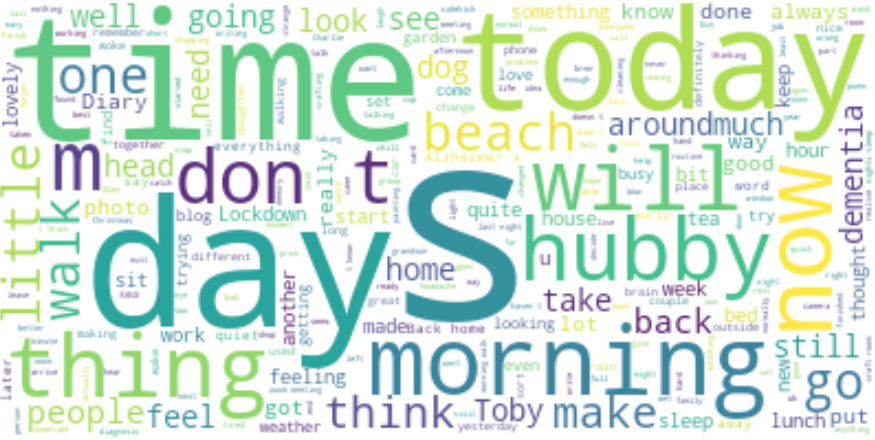Dementia is becoming increasingly common as the number of older adults increases. A condition called Mild Cognitive Impairment is an intermediate stage between normal cognitive function and dementia; with this condition, a person is still able to function on a day-to-day basis. This condition may be severely under-detected, however.
The University of Minnesota’s Nun Study, which analyzed diary entries written by religious sisters between the ages of 75 and 95 over a 50-year period, showed that analysis of language used can indicate whether a person may develop dementia. The writing of nuns who developed dementia and showed neurological features of Alzheimer’s Disease (AD) in their later years demonstrated lower idea density decades earlier (idea density is defined as the average number of ideas expressed per 10 words for at least 10 sentences in each text). These results show that there is a link between language characteristics and the later development of AD.
Dr. Jude Mikal (Health Policy and Management) and Dr. Michael Conway (University of Melbourne, Australia) are working on a project, “Leveraging Natural Language Processing and Machine Learning Tools to Identify Prodromal Cognitive Impairment in Longitudinal Social Media Data,” that builds on the Nun Study, using qualitative coding and Natural Language Processing techniques to uncover linguistic, semantic, and behavioral features of AD in social media and text-rich blog data. The goal is to better understand linguistic changes associated with the development of dementia in order to aid in clinical detection.
A story about this project appears on the School of Public Health website: By analyzing online digital footprints, researchers seek early indicators of cognitive impairment.
This project recently received a UMII Seed Grant. UMII Seed Grant funds are intended to promote, catalyze, accelerate and advance UMN-based informatics research in areas related to the MnDRIVE initiative, so that UMN faculty and staff are well prepared to compete for longer term external funding opportunities.
This Seed Grant falls under the Discoveries and Treatments for Brain Conditions research area of the MnDRIVE initiative.
Research Computing partners:
- University of Minnesota Informatics Institute
